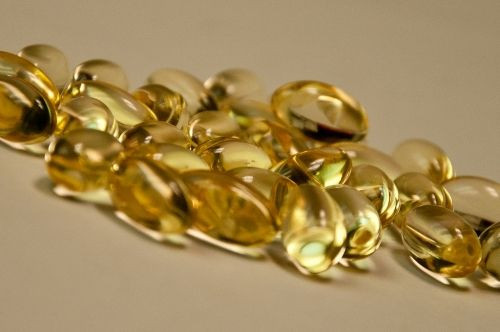Tiny Capsule Reduces Belly fat

A tiny capsule that contains genetically engineered cells will be enough to reduce fat around the belly, a new study says.
Research on animal models found that the cells in the capsule even converted some of the cells in the belly into thermogenic cells. According to researchers, the treatment is effective in reducing 20 percent of the fat around belly in about 80 days.
Mice injected with the fat-burning cells did regain some weight after the treatment, but they didn't dramatically put on weight and also they lost up to a fifth of the cells that would accumulate fat around vital organs.
Visceral fat is the kind of fat that surrounds the organs. Visceral fat is linked to a variety of health problems like heart disease and diabetes. In the study, researchers used brown fat cells to fight white fat cells that are responsible for the fat that accumulates in the belly.
The brown fat cells were combined with cells that lacked a factor that enables it to form visceral fat. These tweaked cells were then placed in a gel-like capsule. The capsule was designed in such a way that it doesn't trigger an immune response in the body.
The capsule is made of a compound called alginate-poly-L-lysine. This compound encapsulates the genetically engineered cells and protects it from immune system while also ensuring that they don't lack nutrients when they are in the capsule.
Lead author of the study Ouliana Ziouzenkova, PhD, from Ohio State University, said that the research, if it passes human tests, will help patients lose weight effectively. She said that people who can't exercise and have to lose weight can benefit from this treatment, according to a press release.
The treatment was tested on animal models. Three sets of mice were involved in the study. The first set received no treatment, the second received empty capsules while the third received capsules with genetically engineered cells. The capsules were injected at two visceral fat sites on the abdomen
All mice were on high fat diet throughout the study. Researchers found that two sets mice that didn't receive the treatment continued to gain weight whereas mice that received the treatment gained weight initially then lost weight for 23 days. The mice that received the treatment did eventually gain weight but not dramatically and were able to maintain weight even on a high-fat diet.
Researchers found that the visceral fat pads in the treated mice were 20 percent less than normal mice. They attribute this loss to the high levels of a key protein ion the treated mice called Ucp1, which burns fat.
"We observed the mice for 80 days after injection and the capsule didn't break or cause any scarring or inflammation. This suggests it's a clean, safe potential therapy for obesity," added Ziouzenkova.
"Heat production was higher in injected animals, but it was not dramatically higher. So there is some kind of response, but it seems not to be at a magnitude impairing a patient's well-being. The animals were also moving less than noninjected animals, but in spite of that, they were still able to lose visceral fat. Their glucose tolerance improved, as well, which is probably related to reduced visceral fats," Ziouzenkova said.
She said that human trials will begin only after studies on larger animals are successful.
The study was published in the journal Biomaterials.



























